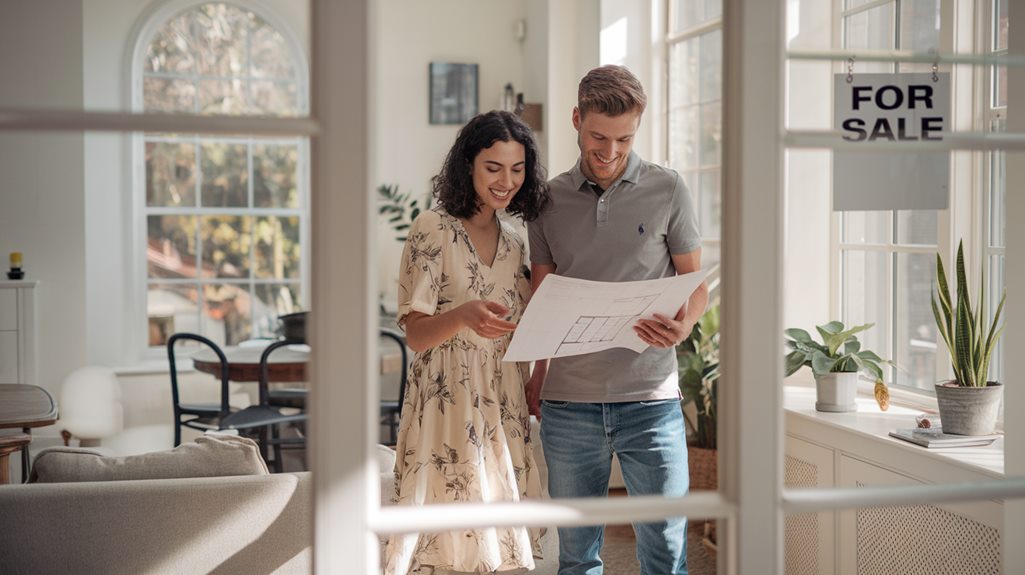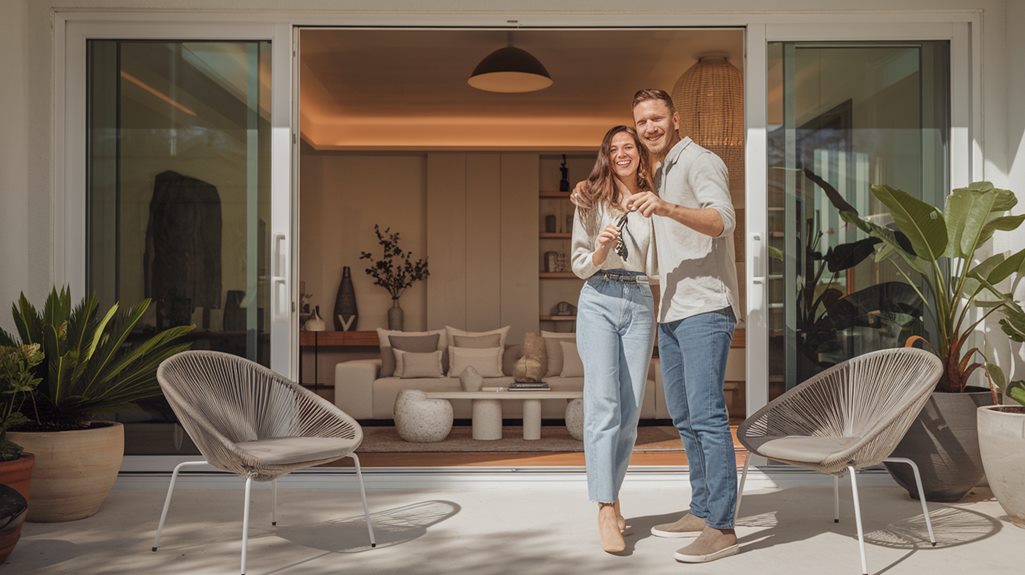Buying your first home can be exciting! There are seven important steps to help you succeed.
First, take a good look at your money. Check your credit score and how much debt you have. This will help you know how much you can spend.
Next, look at different mortgage choices. You want to find one that works for you and has good interest rates.
Then, start saving for your down payment. You can set up a special savings plan just for this.
After that, it's a good idea to get pre-approved for a loan. This will make you a stronger buyer when you start looking for a house.
When you begin house hunting, keep a budget in mind and think about what features you want in a home.
When you find a house you like, make a strong offer. It's important to know what's happening in the local market.
Finally, when it's time to close the deal, make sure you check all the important papers carefully.
Follow these steps for a smooth and happy homebuying journey!
Ready to start building equity in your own Michigan home? Get your personalized home loan quote today.
Assess Your Financial Situation

Before you start looking for a home, it's really important to check your money situation. First, look at your credit score. This number shows how good you're at paying back money. A high score can help you get lower interest rates, which means you might save a lot of money over time.
Next, think about how much money you owe compared to how much you make. This is called your debt-to-income ratio. Lenders like this number to be lower, usually under 43%. This way, they know you can pay your mortgage and still handle your other bills.
Michigan residents, unlock the door to your new home. Request your home loan quote from Treeside Financial today.
Explore Mortgage Options
Looking for a mortgage can feel a bit scary, but it's really important to know your options. There are different types of loans like fixed rates, adjustable rates, and loans from the government. Each one can help you buy a home that fits your needs.
It's a good idea to compare lenders, so you can find the best interest rates and loan terms. Don't forget that mortgage insurance and closing costs can change how much you pay each month.
Here are some things to think about:
- Fixed Rates vs. Adjustable Rates: Do you want a steady payment, or are you okay with changing payments to save money later?
- Government Loans: Look into loans like FHA or VA loans. They can help you buy a home with a smaller down payment.
- Lender Comparison: Take time to shop around. Finding the best rates and terms will help you feel good about your choice.
With this knowledge, you can feel more confident about joining the homebuying community!
Save for a Down Payment

Saving for a down payment is a big step on your journey to buying a home. If you plan ahead, it can be easier.
First, open a special savings account just for your down payment. Try to save a little money every month. You can set it up so that money goes into your savings automatically.
Look at your spending and see where you can save money. Even small changes can help a lot!
It's also good to learn about how much money you'll need for a down payment. This can change based on where you want to live. You might find programs for first-time homebuyers that can help you with some money or benefits.
By making a good plan, you can buy not just a house, but a place where you feel at home.
With smart saving, your dream home can be yours!
Get Pre-Approved
Getting pre-approved for a loan is a really important step when you want to buy a home. It shows sellers that you're serious and helps you know how much money you can spend.
Here are some easy steps to get started:
- Check Your Credit Score: Look at your credit score. If it's low, try to make it better. A higher score can help you get a lower interest rate and better loan options.
- Compare Lenders: Don't just take the first offer you see. Look at different lenders to find the best one for you.
- Gather Your Documents: Get your important papers ready, like your tax returns, pay stubs, and bank statements.
Start House Hunting

Now that you have your pre-approval, it's important to decide how much money you can spend. This will help you find the right home.
Look at what homes are selling for in your area. Think about what you really want in a house and what fits your budget.
Set Budget Parameters
Buying a home is like starting a big adventure! To make sure you're ready, it's super important to set a budget. This helps you know how much money you can spend. You can use tools like mortgage calculators and budget sheets to see what your finances look like.
Here's how to get started:
- Check Your Money: Look at your income, expenses, and savings with a budget sheet.
- Find Out What You Can Afford: Use a mortgage calculator to see how much you can pay each month for a home.
- Pick a Price Range: Choose a price range that feels comfortable for you and works with what homes cost in your area.
When you take these steps, you'll feel more confident. You'll be ready to find a home where you can feel happy and belong!
Prioritize Desired Features
Now that you have your budget, let's think about what you really want in a home. First, think about where you want to live. Do you want to be close to work, family, or fun places?
Next, make a list of things that are super important to you, like a nice kitchen or a big backyard.
It's also good to think about how safe the neighborhood is. A safe place makes it easier to enjoy life. If you have kids or plan to sell your home later, good schools nearby can help your house be worth more.
Don't forget about how much time you want to spend on fixing things. A home that needs less work means more time for fun.
Also, look for homes that save energy. This can help you pay less on bills and be kinder to the Earth.
Make an Offer
When you want to buy your dream home, it's important to make a smart offer. You want to show that you're serious but also stay within your budget. Here are some easy steps to help you:
- Look at Other Homes: Check out what similar homes have sold for in your area. This will help you decide a fair price.
- Show What Makes You Good: Let the seller know if you're already approved for a loan or if you can be flexible with when you close. This can make your offer more appealing.
- Know Your Limit: Decide the most money you're willing to spend. Stick to this number to avoid making a choice you might regret later.
Close the Deal

As you get close to buying your new home, it's time to close the deal. This part is very important. You need to pay close attention to everything and talk about the price.
Closing costs can add up, so you should think carefully about them. Look at each cost and make sure you understand it. If you have questions, ask your real estate agent.
They can help you find out what you can negotiate. With good information, you can make sure the deal is fair for everyone.







